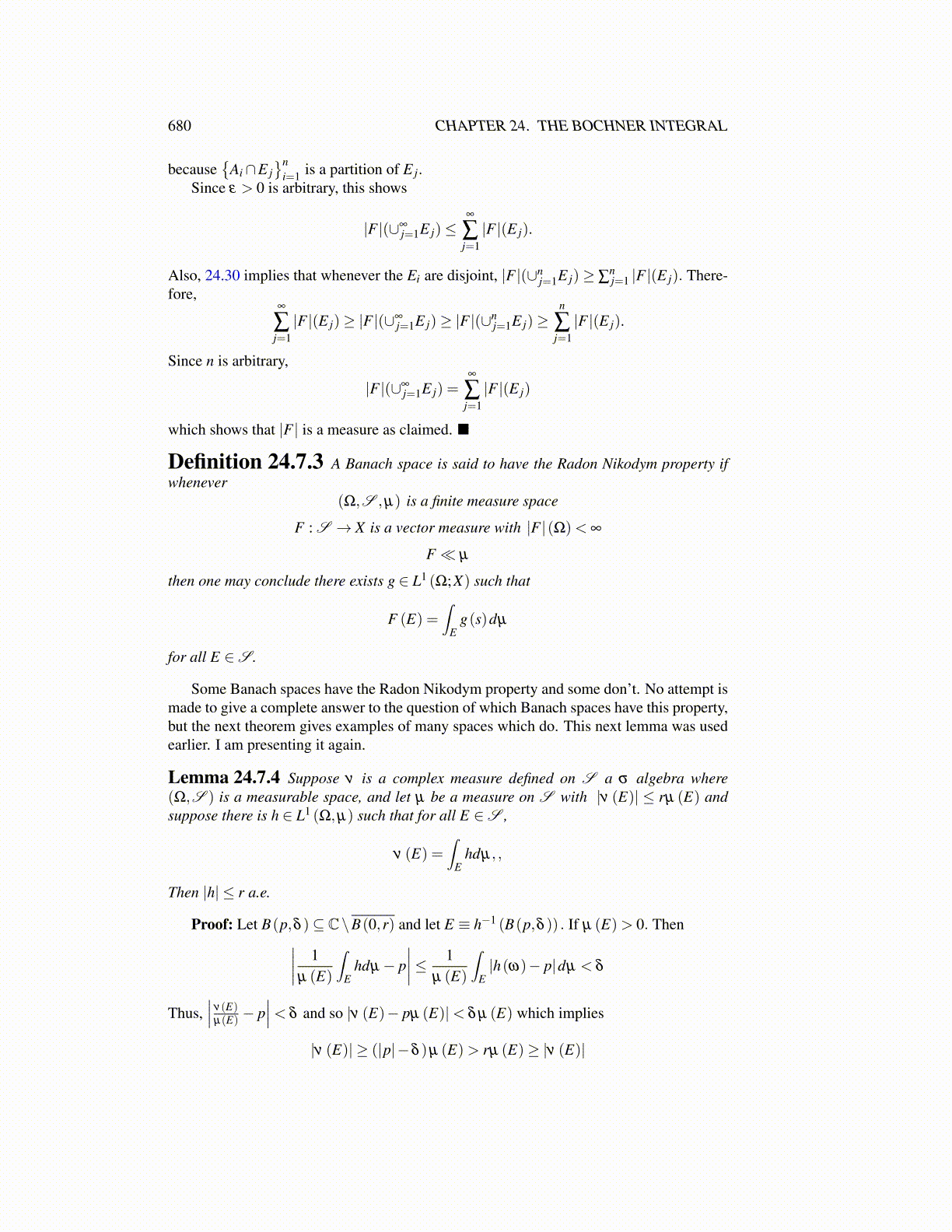
680 CHAPTER 24. THE BOCHNER INTEGRAL
because{
Ai∩E j}n
i=1 is a partition of E j.Since ε > 0 is arbitrary, this shows
|F |(∪∞j=1E j)≤
∞
∑j=1|F |(E j).
Also, 24.30 implies that whenever the Ei are disjoint, |F |(∪nj=1E j)≥ ∑
nj=1 |F |(E j). There-
fore,∞
∑j=1|F |(E j)≥ |F |(∪∞
j=1E j)≥ |F |(∪nj=1E j)≥
n
∑j=1|F |(E j).
Since n is arbitrary,
|F |(∪∞j=1E j) =
∞
∑j=1|F |(E j)
which shows that |F | is a measure as claimed. ■
Definition 24.7.3 A Banach space is said to have the Radon Nikodym property ifwhenever
(Ω,S ,µ) is a finite measure space
F : S → X is a vector measure with |F |(Ω)< ∞
F ≪ µ
then one may conclude there exists g ∈ L1 (Ω;X) such that
F (E) =∫
Eg(s)dµ
for all E ∈S .
Some Banach spaces have the Radon Nikodym property and some don’t. No attempt ismade to give a complete answer to the question of which Banach spaces have this property,but the next theorem gives examples of many spaces which do. This next lemma was usedearlier. I am presenting it again.
Lemma 24.7.4 Suppose ν is a complex measure defined on S a σ algebra where(Ω,S ) is a measurable space, and let µ be a measure on S with |ν (E)| ≤ rµ (E) andsuppose there is h ∈ L1 (Ω,µ) such that for all E ∈S ,
ν (E) =∫
Ehdµ, ,
Then |h| ≤ r a.e.
Proof: Let B(p,δ )⊆ C\B(0,r) and let E ≡ h−1 (B(p,δ )) . If µ (E)> 0. Then∣∣∣∣ 1µ (E)
∫E
hdµ− p∣∣∣∣≤ 1
µ (E)
∫E|h(ω)− p|dµ < δ
Thus,∣∣∣ ν(E)
µ(E) − p∣∣∣< δ and so |ν (E)− pµ (E)|< δ µ (E) which implies
|ν (E)| ≥ (|p|−δ )µ (E)> rµ (E)≥ |ν (E)|